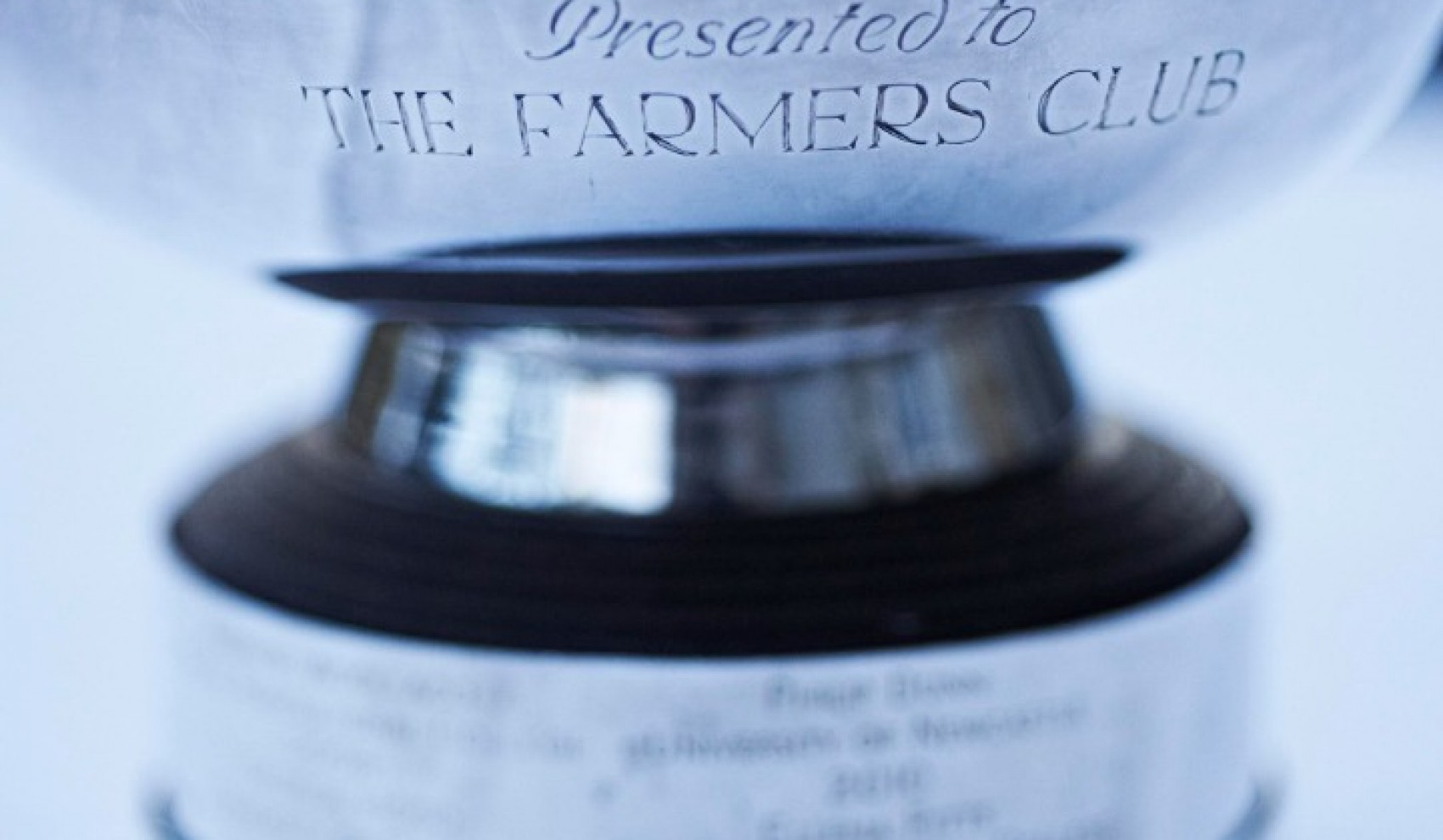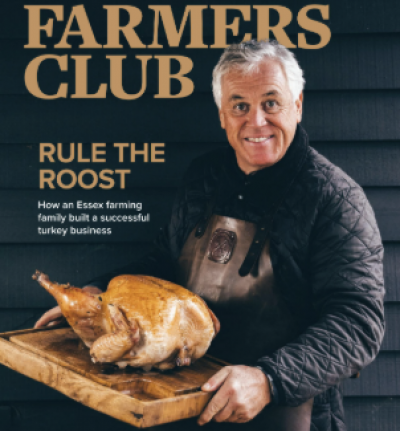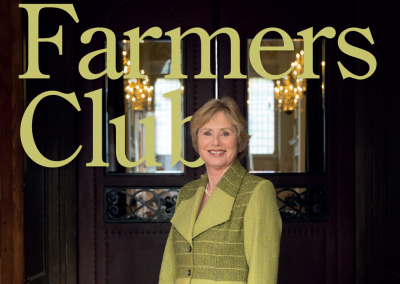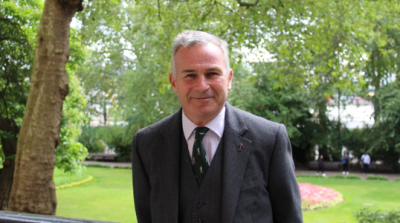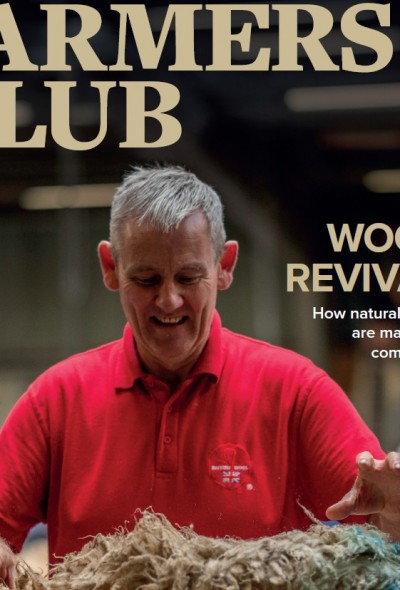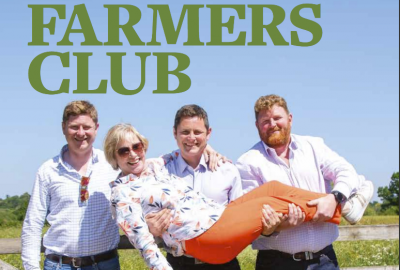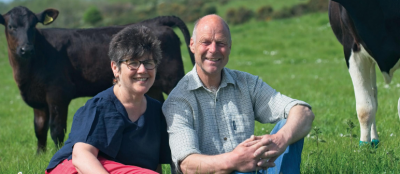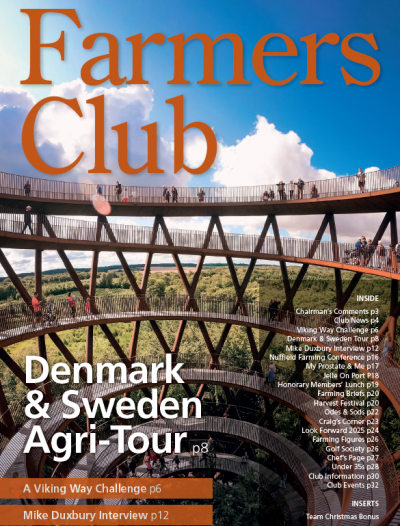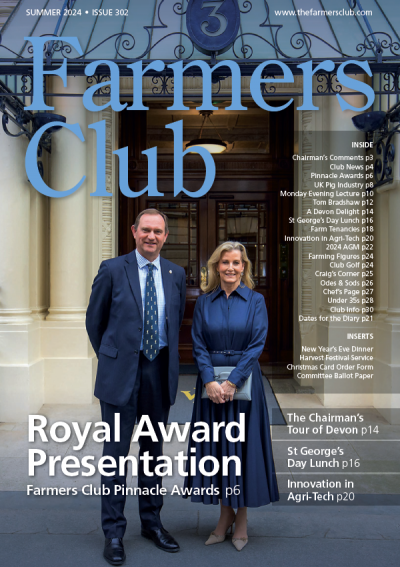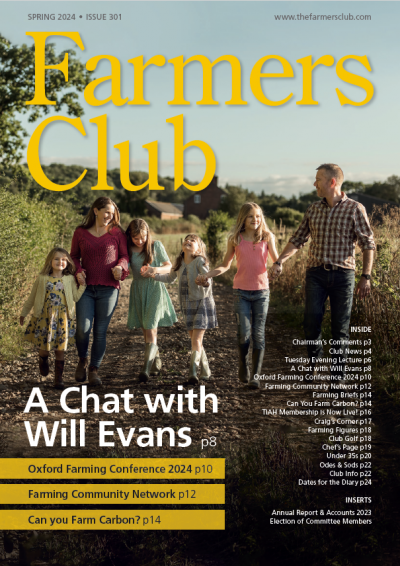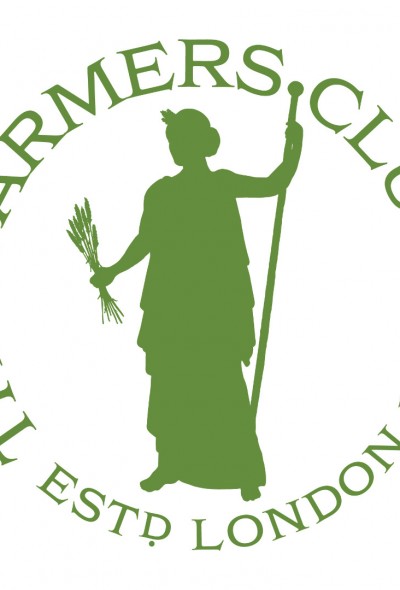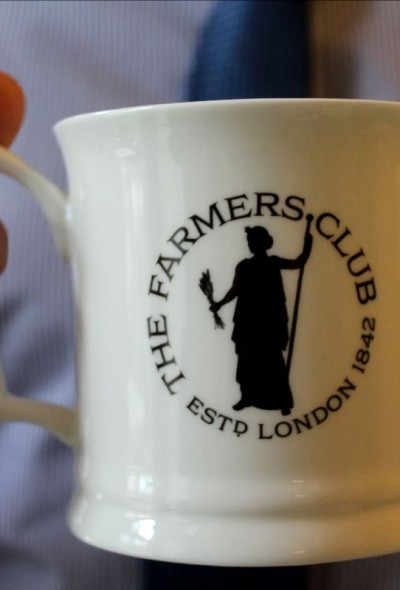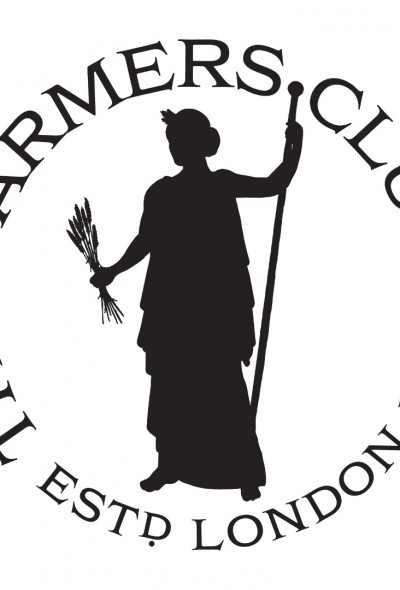THE FARMERS CLUB PINNACLE AWARDS 2024
The Judging Panel, ably led for the first time by Prof Nigel Scollen, assessed the eight finalists gathered from Agricultural Universities and Colleges from across the UK.
Sponsored by the Cave Foundation and run with consultancy firm ADAS this prestigious competition drew entries from colleges and universities across the United Kingdom.
Royal Agricultural University student, Lucy Jermyn, scooped the 2024 Farmers Club Pinnacle Award for farm business management, with Holly Bonner from Bridgwater & Taunton Collect second, and Sally Griffiths, from Aberystwyth University third.
HRH The Duchess of Edinburgh presented the prizes and delivered an insightful and inspirational speech before meeting Club members, finalists, their families and tutors.
Celebrating its 26th year the competition seeks to identify young people destined to lead rural businesses in the future, an ambition first realised by awards instigator and 1997 Club Chairman, Roy Walker, nephew of the late Wilfrid Cave.
The 2024 Judges were keen to see detailed plans that would help farms cope as support payments fall. A firm grasp of the key principles of business planning, finance, cashflow and sensitivity analysis was essential.
Professor Nigel Scollan, Chair of the judging panel, commended the finalists for their dedication and commitment. Their efforts were scrutinised by a judging panel of ADAS Technical Director Business Management James Dunn, Farmers Club Chairman, Richard Maunder FRAgS, and James Drysdale, ADAS Agri Business Consultant and winner of the 2023 Pinnacle Awards.
The interviews, presentations, awards ceremony and celebration dinner were all held in the Club’s Farmers Suite overlooking the River Thames in the heart of London.
The keenly contested competition saw ADAS sift a long-list of entrants to generate a shortlist of eight for interview in the Club. Key criteria for judging day were the ability to write a report concisely, a determination to defend it, clear presentation style, strong communication skills, and a good degree of common sense, and self-confidence.
See finalist reports at: www.thefarmersclub.com/library/pinnacle-awards-reports:
Pinnacle Gold, Nickerson Cup, £2000
Lucy Jermyn, Royal Agricultural University
A full farm business plan for Ampney Brook Farm that included three enterprises and three diversifications. The enterprises were a Hebridean sheep flock, a Shorthorn cattle suckler herd and a woodland enterprise. The proposed diversifications were a camp site, allotment gardens and a community outreach programme. Each enterprise and diversification had been planned in terms of market research, practical implementation, and financial analysis. Environmental scheme opportunities were also included within the business plan to provide additional income and resilience to the business. Every aspect had been clearly thought through with good justifications, both business and personal based, provided for the decisions made. Labour demand, legal requirements and machinery requirements for the whole farm had also been considered and presented within the report.
Pinnacle Silver, £1000
Holly Bonner, Bridgwater & Taunton College
A very detailed investment appraisal for a beef enterprise at Rodway Farm, owned by the college. Three potential systems were presented, partial budgeted, and compared: a winter finishing system, dairy beef calves sold as stores, and dairy beef calves finished on intensive forage. Based on the partial budgets, it was recommended that the second system was adopted. The report then went on to include physical requirements, a marketing strategy, and full financials for the proposed enterprise.
Pinnacle Bronze, £600
Sally Griffiths University
Analysis of Yaris Farm’s current performance, identifying an opportunity to expend the dairy herd to increase the overall profitability of the business. The dairy herd was selected as the area for expansion based on the initial business analysis, which identified that the dairy enterprise was more profitable than the beef enterprise. Full financial planning, including partial budgets and gross margins, was provided to support the proposed dairy herd expansion.
PINNACLE AWARDS 2024 – RUNNERS-UP (in order of interview):
Angus Cuming, Newcastle University
A business plan for Cockle Park Farm in Northumbria. The proposal detailed and budgeted for an arable enterprise, a suckler herd enterprise and a sheep enterprise on the farm. Additionally, environmental options were considered and included in the plan. Background information and practical detail was included as well as financial planning.
Harry Parsons, Harper Adams University
A diversification appraisal for a farming business that is presented with a potential opportunity in the dog kennel business. Very detailed market research and analysis including researching the local dog kennels that are closing. A thorough business plan, including some financial planning, presenting a profitable diversification opportunity.
Jenny Leech, SRUC
A business proposal for building insulation made from sheep wool in Lanarkshire, Scotland. The wool was to be sourced locally with the inspiration for the business proposal stemming from the objective of solving an issue faced by the agricultural community. In this case, by providing local sheep farmers with a convenient and local market for their wool that paid above market prices for the wool.
Teddy McKenzie, Writtle University
The report presented a business plan for a market garden diversification at Weston Park Farms, a real-life scenario presented to Teddy that he is already pursuing and will be working on full time once graduating later this year. Through market research and technical detail was presented along with a sound marketing strategy. A well-structured report but lacked financial detail and planning.
Jade Ely, Bridgwater & Taunton College
Full diversification appraisal for a farm in Exmoor considering potential diversification opportunities in the tourism sector. Three options were presented from a practicality and feasibility perspective, with gross margins included for each. The chosen option of glamping, in the form of two shepherd huts, was selected as the most suitable. A detailed plan for the implementation if this was then presented, this included: skill requirements, building requirements, labour requirements, and more. Some financial planning was included.
ALL FINALISTS RECEIVE ONE-YEAR FREE CLUB MEMBERSHIP
